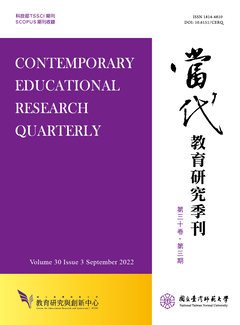

研究目的
高等教育機構與國家社會經濟發展關係緊密,系所主管更是高教機構的基層領導,惟其被期待展現的角色與職責,多與其學術專業知能迥異。國內各大學雖有提供新任系所主管培訓,但課程內容多是利用短時間安排各處室進行業務宣導,難以有效提升系所主管領導能力,長時間的演講也導致新任系所主管參與培訓的意願低落。為促進我國系所主管領導發展,本研究與一所綜合型國立大學合作建構新任系所主管領導培訓方案,包含課程內容與實施方式,並針對其他大學實施類似方案提供建議。
研究設計/方法/取徑
為使培訓方案能符應組織脈絡、回應參與者需求及真實情境,本研究採用問卷調查與行動咖啡館,蒐集新任系所主管領導培訓需求、利害關係人觀點與資深主管實務經驗,並取經University of British Columbia學術主管培訓模式,擬定個案學校新任系所主管培訓課程及實施方式,即學術領導發展方案。
研究發現或結論
本研究依據上述研究方法擬定個案學校新任系所主管培訓方案,課程內容以系所主管角色與職責、教師教學與研究支援、領導團隊建立、有效主持會議、學校行政資源及校務發展重點為優先議題,並提供方案實施原則與多元策略,如以情境式影片、案例與角色扮演進行研討,突破傳統框架的培訓方式。
研究原創性/價值
本研究以實證研究為基礎,透過系統性研究歷程發展,符應臺灣脈絡的大學新任系所主管領導發展方案,期能實際改善系所主管困境,進而提升我國高等教育機構的發展:一、建構培訓方案的本土發展歷程:國外雖有學術主管領導發展方案,但並非完全適用於本土的脈絡,本研究根據理論與蒐集個案學校特性資料,建構新任系所主管培訓方案發展歷程,提供給想規劃類似方案的大學參照實施。二、發展新任系所主管培訓內容:依循前述系統性歷程,發展符應個案學校系所主管培訓需求的課程內容與多元實施方式,有效提升新任系所主管培訓方案的品質。
教育政策建議或實務意涵
本研究除提供個案學校新任系所主管培訓方案的具體內涵與實施的多元策略,也提供建議給想規劃類似系所主管培訓方案的大學:一、課程主題與目標訂定應關注組織脈絡;二、新任系所主管培訓方案的成功推展,有賴學校各層級支持;三、成立常設性團隊統籌培訓方案課程研發與執行。
Purpose
Higher education institutions are integral to a country’s development, but the job scopes of the leaders of many higher education institutions fall outside their domain of expertise. The training that universities provide to academic leaders often fall short and focus on administrative matters rather than leadership skills. Thus, this study developed and implemented an academic leadership program that is suited to the Taiwanese context.
Design/methodology/approach
This study implemented a questionnaire, held a ProAction Café, inquired into the needs of academic leaders and stakeholders, and drew on the experience of senior academic leaders and the academic leadership training model used at University of British Columbia. This was done to ensure that the program that we developed was appropriate to the university we implemented it in.
Findings/results
The program covered the roles and responsibilities of academic leaders; support for teaching and research staff; techniques for implementing team building and conducting effective meetings; the process of securing funding; and the development plans of the university. Several novel tools and methods were used, such as situational films, case studies, and role-playing.
Originality/value
Although many universities outside Taiwan have academic leadership programs, information regarding their development is often not available to the public. This study thus conducted empirical research to ensure that the program we developed is suited to a Taiwanese context, and it is the first to do so. The findings can serve as a basis for the development of similar programs in Taiwanese universities.
Implications for policy/practice
We find that academic leadership programs must be formulated with reference to the organizational context and that these programs require support from all levels of the university. Dedicated planning teams should also be created to coordinate the development and execution of these programs.

This work is licensed under a Creative Commons Attribution-NonCommercial 3.0 Taiwan License.
Center for Educational Research and Innovation, National Tawain Normal University
162, Ho-Ping East Rd, Sec. 1, Taipei, Taiwan | Tel:+886-2-7749-3670 | E-mail: cerecerq@gmail.com
CERI | NTNU | E-mail Alerts | Open Journal System
© 2014 CERI-NTNU
